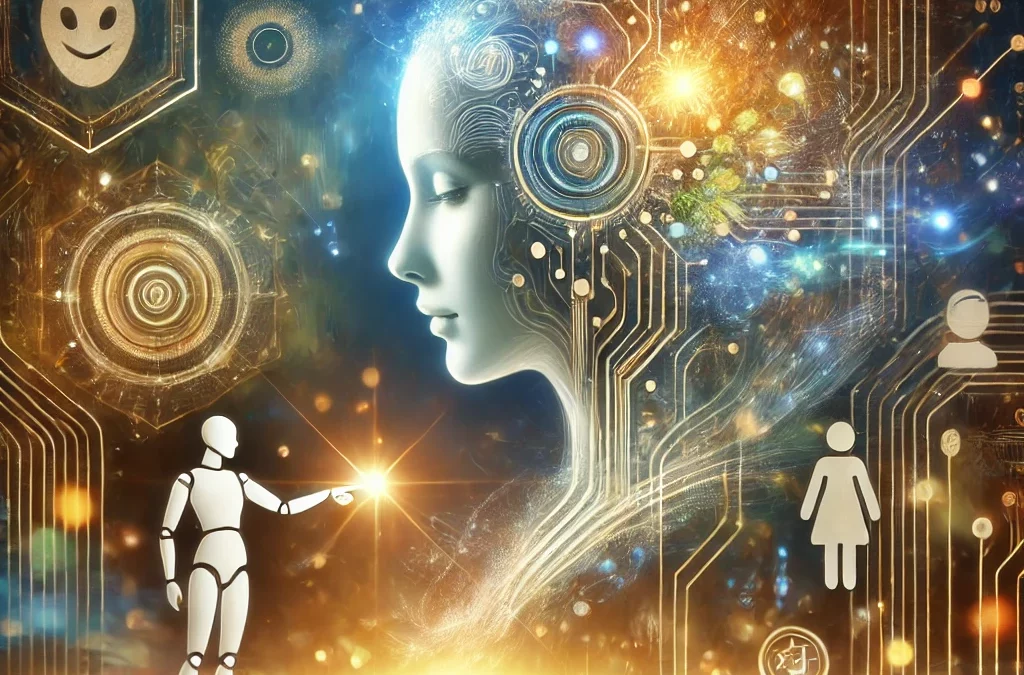Emotional Intelligence in AI | Building Trust in Technology
As AI becomes an integral part of our world, its ability to understand and adapt to human emotions is no longer just a feature—it’s a necessity. Emotional intelligence (EI) in AI is the key to bridging the gap between technology and humanity, enabling systems to foster trust, improve experiences, and build meaningful connections.
At Kith Precision Services, we’re passionate about designing AI that doesn’t just perform tasks but earns trust by recognizing and responding to the emotional needs of the people it serves.
Why Emotional Intelligence is Critical to Building Trust
Trust is the foundation of every meaningful interaction, and when it comes to technology, emotional intelligence plays a pivotal role in establishing that trust. Here’s how:
🤝 Understanding Human Emotion: Emotionally intelligent AI can detect subtle cues—such as frustration, satisfaction, or confusion—and adapt its interactions accordingly. This responsiveness helps users feel understood and valued.
🔄 Adapting to Contexts: Instead of rigid, one-size-fits-all responses, emotionally aware AI can tailor its behavior based on the situation, ensuring a more personalized and relevant experience.
💡 Reducing Friction: Whether it’s calming an upset customer or assisting in sensitive contexts like mental health, EI-driven AI helps diffuse tension and smooth interactions, leading to greater user confidence.
How Kith Builds Trustworthy, Emotionally Intelligent AI
Building trust through emotional intelligence requires a thoughtful, multi-layered approach. At Kith, we focus on:
-
Human-Centered Design: We start with people, creating AI that reflects their needs, emotions, and values. By embedding empathy into every layer, our systems are designed to meet users where they are emotionally.
-
Ethical Frameworks: Trust is impossible without ethics. Our AI solutions are built to respect privacy, maintain transparency, and prioritize user well-being, ensuring technology serves humanity responsibly.
-
Continuous Adaptation: Emotional intelligence is not static—it grows. We employ adaptive learning models that refine their emotional awareness over time, ensuring the AI evolves alongside the people it serves.
Real-World Applications of Emotionally Intelligent AI
The transformative potential of emotionally intelligent AI is already evident in:
🎯 Customer Engagement: AI can detect dissatisfaction in a customer’s tone and proactively offer solutions, turning potentially negative experiences into positive ones.
🧠 Mental Health Support: Chatbots equipped with emotional intelligence can provide empathetic interactions, offering users a safe space while directing them to professional resources when needed.
📈 Team Collaboration: In workplace tools like Atlassian’s Rovo, emotional intelligence fosters smoother collaboration by suggesting neutral, constructive communication during tense discussions.
The Future of Emotional Intelligence in AI
As AI continues to evolve, emotional intelligence will play a central role in how technology earns and sustains our trust. At Kith, we believe this isn’t just about innovation—it’s about creating a future where technology respects, supports, and enhances the human experience.
By embedding empathy and ethics into the heart of AI, we can ensure it becomes a partner we can trust—a partner that not only understands us but helps us grow.
